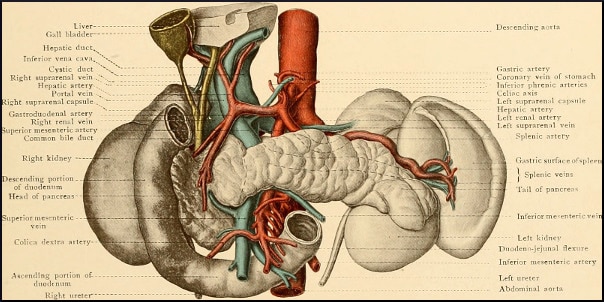
In the diabetes story, insulin is the villain. Its task is to induce various cells to accept glucose from the blood. One of two bad things can happen. The cells refuse to take in glucose, because for some reason they can’t hear or decode the request. That’s insulin insensitivity. Or, maybe the pancreas just flat-out stops making insulin. Either way, glucose stays in the blood, and life becomes complicated and expensive.
But we can’t blame insulin, really, because it only knows to act if directed by the beta cells, which are supposed to detect high blood sugar. Sometimes, they fail.
Dr. Jason Fung, author of The Obesity Code and The Complete Guide to Fasting, is a nephrologist who teaches that type 2 diabetes is reversible. He directs our attention back to WWI and WWII, when starvation was widespread, and Type 2 diabetes was not. He writes:
During both world wars, the mortality from diabetes dropped precipitously. In the interwar period, as people went back to their accustomed eating habits, it went back up. This, of course is quite easy to understand. Since T2D is essentially a disease of excessive sugar in the body, reducing intake of sugars and carbohydrates should cause less disease.
The diabetes “specialists” all consider T2D to be a chronic and progressive disease. However, both bariatrics and fasting proves them wrong.
What does bariatric surgery have in common with fasting? Suddenly, calories are severely restricted. Imagine looking at a future of sticking sharp objects into your skin every day for the rest of your life… and then not. Even after having type 2 diabetes for decades, many people test out as no longer being clinically diabetic, and they say goodbye to insulin. As if by magic, the disease is neither chronic nor progressive. And yes, intermittent fasting counts.
It should go without saying, every professional in this field warns very emphatically that no one should undertake any kind of diabetes-reversing therapy unless under a doctor’s supervision.
Why does fasting work?
Just like the rest of us, the body’s cells have housekeeping to do. They need a little break, too, for rest and recuperation. When we desist from sending down a constant barrage of nutrients, toxins, empty calories, fillers, and debris, the organs and all their component cells have a chance to deal with other matters. Nick Lesica writes:
[…] The lack of food also forces cells to resort to alternative sources of energy. Some of these, such as ketones — molecules created in the liver from recycled fat — appear to be beneficial.
The important thing is that even though most people are unwilling or unable to submit to hardcore fasting or perpetual calorie restriction, intermittent fasting can bring a lot of the same rewards.
Lesica references mouse research done at the University of Southern California by Valter Longo and team, who wanted to know whether periodic fasting could reverse diabetes in mice. The answer is yes. The pattern was, seven unrestricted eating days alternating with four restricted eating days, for several months. The results were reported as such:
[…] the pancreas actually shrunk during the four restricted eating days, and regrew during the seven unrestricted eating days. After several such cycles of shrinking, recycling, and regrowing, the pancreas was nearly as good as new.
Another mouse experiment went with a 25-day period of normal eating, with a five-day simulated famine, and the pancreas obligingly regenerated its beta cells and put them to work detecting sugar and sending out alarms to the insulin troops. The symptoms of diabetes can be reversed by diet. Commenting about this work, Dr. Longo pointed out the really exciting feature:
Scientifically, the findings are perhaps even more important because we’ve shown that you can use diet to reprogram cells without having to make any genetic alterations.
Your responses and feedback are welcome!
Source: “Fasting Cures Type 2 Diabetes — T2D 4,” iDMProgram.com, undated
Source: “Intermittent fasting could help tackle diabetes — here’s the science,” TheConversation.com, 08/21/17
Source: “Fasting diet ‘regenerates diabetic pancreas’,” BBC.com, 02/24/17
Photo credit: Internet Archive Book Images on Visualhunt/No known copyright restrictions

 FAQs and Media Requests:
FAQs and Media Requests: 












One Response
This information is very encouraging. I have been trying to get my glucose/insulin levels down with little success. The pancreas may be the missing link in my program.
Thank you Dr Fung for making this available.